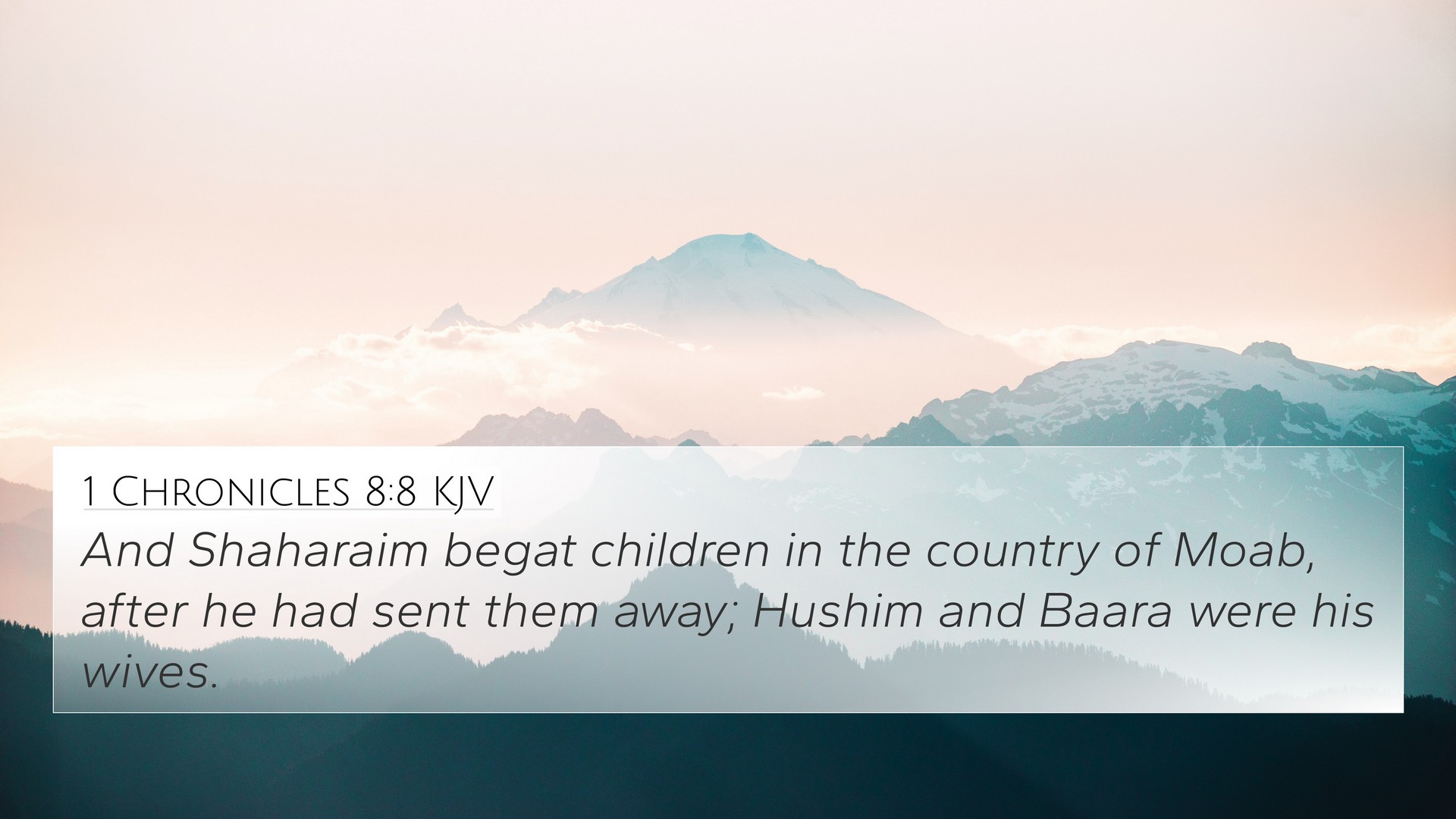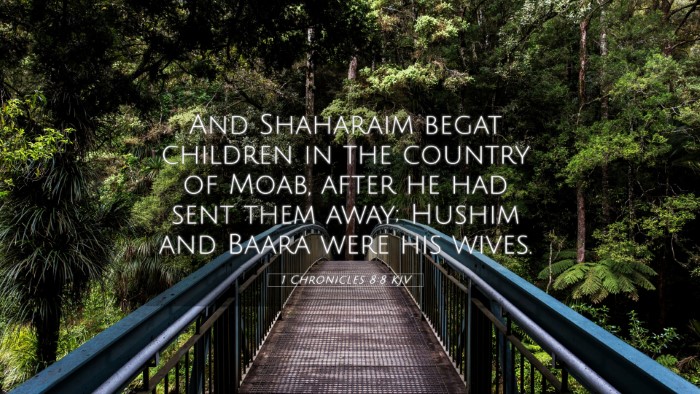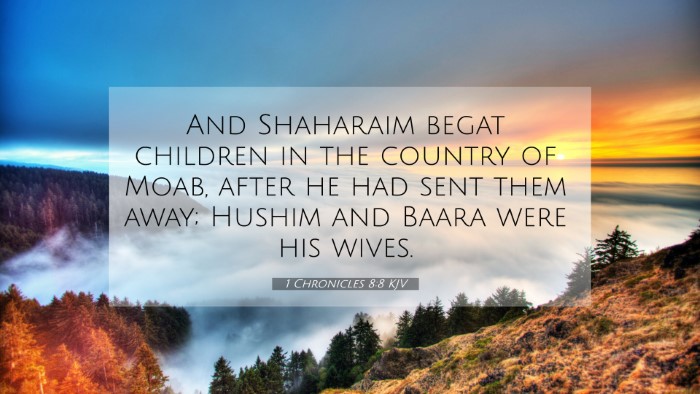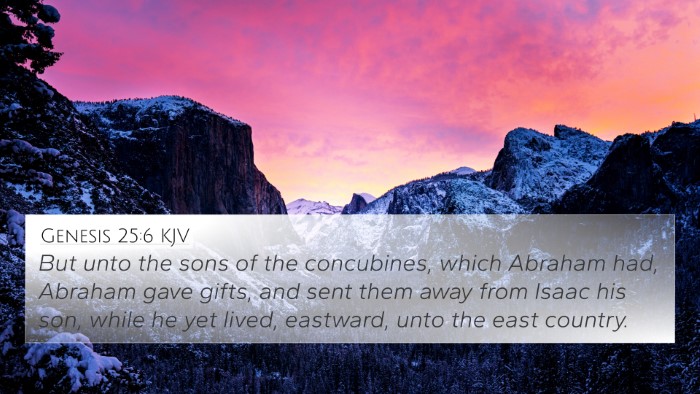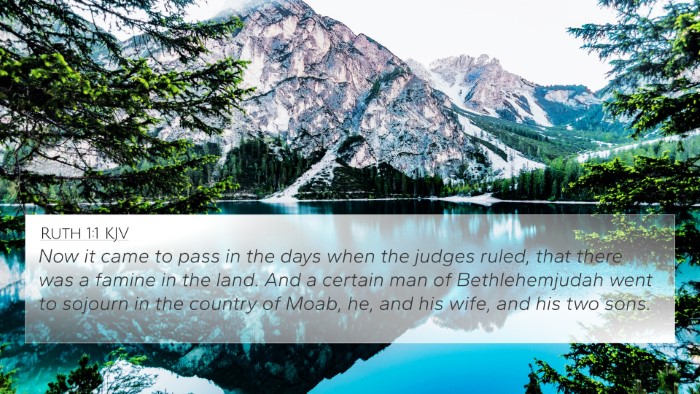Old Testament
Genesis Exodus Leviticus Numbers Deuteronomy Joshua Judges Ruth 1 Samuel 2 Samuel 1 Kings 2 Kings 1 Chronicles 2 Chronicles Ezra Nehemiah Esther Job Psalms Proverbs Ecclesiastes Song of Solomon Isaiah Jeremiah Lamentations Ezekiel Daniel Hosea Joel Amos Obadiah Jonah Micah Nahum Habakkuk Zephaniah Haggai Zechariah MalachiChapter
1 Chronicles 1 1 Chronicles 2 1 Chronicles 3 1 Chronicles 4 1 Chronicles 5 1 Chronicles 6 1 Chronicles 7 1 Chronicles 8 1 Chronicles 9 1 Chronicles 10 1 Chronicles 11 1 Chronicles 12 1 Chronicles 13 1 Chronicles 14 1 Chronicles 15 1 Chronicles 16 1 Chronicles 17 1 Chronicles 18 1 Chronicles 19 1 Chronicles 20 1 Chronicles 21 1 Chronicles 22 1 Chronicles 23 1 Chronicles 24 1 Chronicles 25 1 Chronicles 26 1 Chronicles 27 1 Chronicles 28 1 Chronicles 29Verse
1 Chronicles 8:1 1 Chronicles 8:2 1 Chronicles 8:3 1 Chronicles 8:4 1 Chronicles 8:5 1 Chronicles 8:6 1 Chronicles 8:7 1 Chronicles 8:8 1 Chronicles 8:9 1 Chronicles 8:10 1 Chronicles 8:11 1 Chronicles 8:12 1 Chronicles 8:13 1 Chronicles 8:14 1 Chronicles 8:15 1 Chronicles 8:16 1 Chronicles 8:17 1 Chronicles 8:18 1 Chronicles 8:19 1 Chronicles 8:20 1 Chronicles 8:21 1 Chronicles 8:22 1 Chronicles 8:23 1 Chronicles 8:24 1 Chronicles 8:25 1 Chronicles 8:26 1 Chronicles 8:27 1 Chronicles 8:28 1 Chronicles 8:29 1 Chronicles 8:30 1 Chronicles 8:31 1 Chronicles 8:32 1 Chronicles 8:33 1 Chronicles 8:34 1 Chronicles 8:35 1 Chronicles 8:36 1 Chronicles 8:37 1 Chronicles 8:38 1 Chronicles 8:39 1 Chronicles 8:40